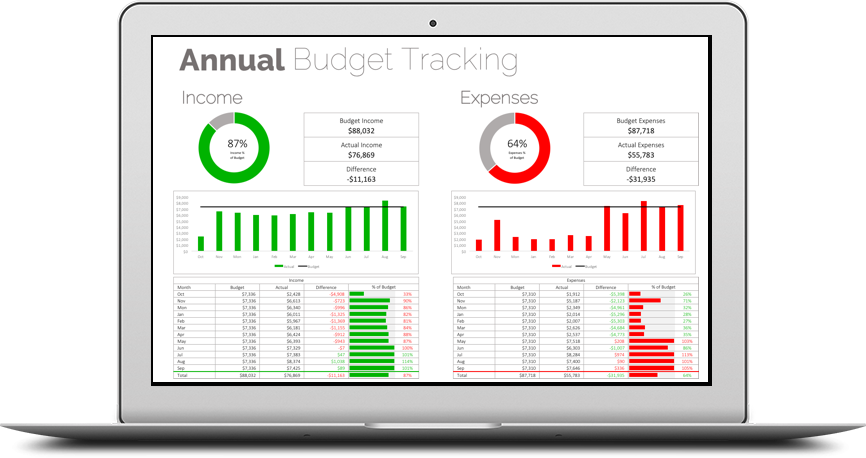How Much House Can You Afford?
Before thinking about buying a home you need to decide how much house you can afford. Housing represents 35%+ of a typical household budget but buying the right amount of house will depend on your other financial goals.
Buying a house is one of the biggest financial decisions you’ll ever make. Amazingly, about half of us will make this decision before our 30th birthday.
According to Statistics Canada 50.2% of Canadians have purchased a home by age 30. Not surprisingly this is down from previous generations where 55.5% had already purchased their first home by age 30.
Making one of the biggest financial decisions of your life can come with a lot of questions, especially when you’re making this decision at such a young age.
One of those questions might be “how much house can I afford”?
Like many big questions, there isn’t just one answer. If anything, this question just causes more questions.
To figure out how much house can you can afford, you really need to ask yourself a few more questions before coming to the right answer.
According To Whom?
How much house can you afford? The real question is, according to whom? Affordability rules fall into two groups and each group has a very different way of deciding how much house you can afford.
The first group is made up of the banks. Banks have very specific rules that they use to determine how much they will loan for a home purchase. These rules are pretty much set in stone and there are very few ways to get around them.
The banks use a formula based on your gross income. While one financial institution might have a slightly different formula vs another, they’re all pretty cut and dry. Once the bank tells you how much you can afford there isn’t much wiggle room.
The second group is made up of you and your unique financial situation. There are personal finance ‘guidelines’ that you can use to answer the affordability question. These guidelines help you decide how much house you can afford while still being able to achieve your other financial goals.
These rules aren’t quite as cut and dry. Everyone is different. For example, someone who doesn’t own a car and wants to live an urban lifestyle might be able to afford significantly more house than another person with a similar income but who owns two cars with high monthly payments. Same income, different affordability.
Both rules are important to consider because they focus on different factors.
New blog posts weekly!
Tax planning, benefit optimization, budgeting, family planning, retirement planning and more...

Bank Rules
Bank affordability rules focus on debt service ratios. These ratios determine the maximum mortgage payment you can afford based on your gross income.
What impacts your debt service ratio? Things like other debt payments, heating costs, property taxes and of course… interest rates, will all impact your debt service ratio.
For example, two loans, one with a higher interest rate and one with a lower interest rate, will have different mortgage payments. So, while the amount of the loan stays the same, the lower interest rate will make the monthly payments more affordable.
Mortgage affordability calculators like this one can help you get a ballpark number for how much you can afford.
Affordability calculators are a good place to start, but the best thing to do is to visit a mortgage broker and get prequalified for a mortgage. Your broker will help you figure out exactly how much the banks are willing to lend you and they’ll help you get the best rate.
“The best way to decide how much house you can afford is to make a detailed budget.”
Personal Finance ‘Guidelines’
Personal finance guidelines are less strict. The most basic personal finance guideline is that housing expenses shouldn’t be more than 35% of your net income.
This guideline is based on the simple 50/30/20 budget. Following these budget rules will ensure you can afford your home while still achieve your other financial goals. Basically, it helps you avoid becoming “house poor”. Along with spending 35% of your net income on housing it also assumes 15% of your net income goes to transportation, 20% of your income goes towards savings/debt and 30% of your net income goes to general life expenses.
The thing is, tradeoffs can be made. These tradeoffs may let you spend more than 35% of your net income on housing if you can save money in other categories.
Transportation and housing are very much linked, buying in one location may mean higher transportation costs but lower housing costs. Buying a house in another location may mean lower transportation cost but higher housing costs.
Typically, transportation expenses are around 15% of a person’s income. But living in a location that is conducive to other forms of transit can cut this cost dramatically, even to zero. Going above the housing guideline is reasonable when it allows you to significantly cut your transportation expenses.

How To Decide How Much House You Can Afford?
The best way to decide how much house you can afford is to make a detailed budget. I always recommend making a new budget for major life changes. This might be marriage, or children, or buying a house.
Making a new budget will help you decide how much house you can truly afford while still affording your regular lifestyle.
A new budget can also help you identify tradeoffs. You might find yourself going over the 35% guideline for a newer, energy efficient house, that has lower ongoing expenses. Or you might go over the 35% guideline in a city with lower annual property taxes.
Whatever you decide, the very first thing you need to do is get prequalified for a mortgage. Everyone’s budget its different, we all value different things, we all prioritize housing differently, but according to the bank we’re just a number and the first thing you’ll want to do is find out what number the bank says you can afford.
Join over 250,000 people reading PlanEasy.ca each year. New blog posts weekly!
Tax planning, benefit optimization, budgeting, family planning, retirement planning and more...
Join over 250,000 people reading PlanEasy.ca each year. New blog posts weekly!
Tax planning, benefit optimization, budgeting, family planning, retirement planning and more...





0 Comments